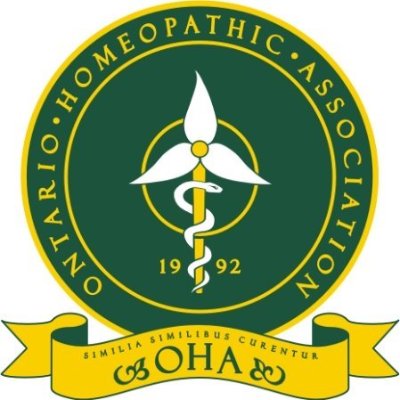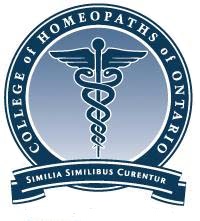
Homeopathy, in my opinion, is one of the most powerful systems available to heal the mind, body, and soul; homeopathy has the ability to affect memories of past abuse and trauma that can cause illness. And only by healing these emotions and memories stored deep in the psyche can we begin to restore the vital force or “chi” energy in the body.
Homeopathy is based on a natural law of curing with non-toxic medications specially prepared to enhance their therapeutic effect. Remedies are based on the “law of similar.” Essentially this law states that a medicine, which produces symptoms in a healthy person, will cure the same symptoms in a sick person. An example is the use of Ipecac – in its crude form, the way you might buy it in a pharmacy, it can induce vomiting. But when this substance is prepared homoeopathically, it has the ability to cure some types of nausea and vomiting.
Homeopathy can boost immune systems and is truly preventative medicine.
It is used worldwide by millions of people. Fans of homeopathy include Paul McCartney, Charles Dickens, Benjamin Disraeli, Johann Wolfgang Goethe, Nathaniel Hawthorne, William James, Henry Wadsworth Longfellow, Pope Pius X, John D. Rockefeller, Harriet Beecher Stowe, William Thackeray, Daniel Webster, and W. B. Yeats. England’s royal family has employed homeopathic practitioners since the 1830s. The Queen Mother lived to a very good age and was a strong believer.

Disturbances to our life energy come from various shocks and traumas, both physical (accidents, drugs, surgical interventions, etc.) and mental/emotional (deaths of close friends, spouse, or family members, fearful incidents, major relationship break-ups, job losses, financial problems, lawsuits, etc.). These can leave a lingering disturbance in the life force that usually cannot be overcome just with healthy food, exercise, rest, and other therapies.
Constitutional Prescribing
Constitutional prescribing addresses why the body broke down in the first place and hereditary weaknesses.
The process includes taking a case history to understand the patient’s individuality. It is this individualistic approach that makes homeopathy special. It is not one size fits all. Every case is unique because every patient is unique. Remedies are chosen based on the emotional and physical needs of the patient. If faced with treating five women suffering from the same condition, each one could receive a different remedy reflecting her essence—her personality and unique habits, quirks, likes, and dislikes.
Homeopathic remedies take a holistic approach. The traditional medical history of the person and family has been established as well as the timing of critical physical and emotionally traumatic events. An individual’s habits and behaviors must be considered to determine the best remedy. Questions will establish an individual’s reactions to weather and environment, circadian rhythms, food preferences, and whether discomforts in the body focus on the right or left side or travel from left to right or right to left. Even the person’s sleep position and room temperature preferences are considered.
Besides the physical aspects, the most important information in selecting a homeopathic remedy pertains to the patient’s emotional and spiritual values. This information is gathered through a series of questions on dreams, fears, and feelings.
Acute Prescribing Now Available
Acute homeopathic prescribing treats abrupt onset illness that requires immediate attention. Acute refers primarily to the speed of onset and self-limiting character of the disorder rather than its seriousness. Acute prescribing aims to bring relief from an illness that comes on suddenly, such as respiratory infections, influenza, fever, GI problems, headaches, insect bites, burns, vomiting, diarrhea, etc.
The remedies given in acute homeopathic prescribing stimulate the body’s natural ability to heal.
Homeopathy has been around since the times of Hippocrates, but it only gained recognition in 1790 when physician Samuel Hahnemann tested a malaria drug, quinine, on himself. He discovered large quantities of the drug made the condition worse; however, in a diluted form, it alleviated the condition. This opened the road to the discovery of thousands of remedies (made from plants, animals, and minerals) that were then potentized (which is the succusion of the solution), increasing the remedies’ power.
Homeopathy is regulated under Ontario’s Regulated Health Professions Act (RHPA) and is recognized and acknowledged as its own distinct and specialized system of medicine. After completing the registration process, an official Registration Certificate is awarded and ensures that Standards and Guidelines are outlined and followed.
Most Benefit Carriers are now in a position to cover Homeopathy as Part of the RHPA—as The Ontario Homeopathic Association has been advised. Sun Life and Manulife have approved it for coverage, for example.
Homeopathy is incorporated into the hospitals and health care systems of many countries. It is recognized by the World Health Organization as the world’s second-fastest-growing system of medicine. It has proven effective in treating acute and chronic disease and may reduce and often eliminate the need for expensive medications; it shortens recovery and encourages a healthy lifestyle. Physical conditions are relieved, and the patient’s mental and emotional states also improve. Stress is reduced, sleep is better, and patients benefit from increased energy and motivation.
Homeopathy offers a safe, natural approach to health with no side effects and is compatible with allopathic.
Listen here


